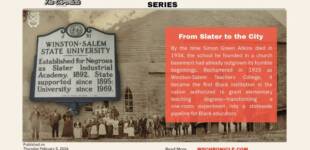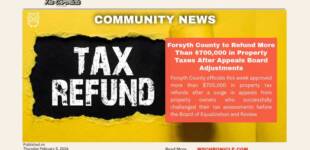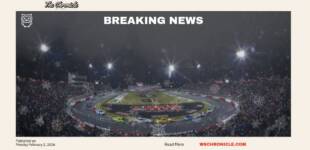Professors: Be cautious of political polls
BY TODD LUCK
THE CHRONICLE
Even if candidates like Hillary Clinton seem to be winning in the polls, voters should take nothing for granted.
This was just one of the things that came out of a series of forums held at Wake Forest University on issues in the election. Experts spoke on topics like immigration, education and economic policy during the three-day event. A panel on its final day on Thursday, Oct 27, focused on polling and voting in North Carolina.
“The national media has been paying attention to North Carolina, not just because of how important we are as a swing state, but because its a very polarized place,” said Wake Forest professor Michael Pisapia, who moderated the event with Wake Sophomore Zachary Bynum.
Polling has become a topic of controversy in the election. Republican nominee Donald Trump has said that the polls showing him losing are “rigged” against him. Duke University political science professor Sunshine Hillygus said it’s actually an old tactic for politicians to question polls’ methodologies when they’re losing.
While they’re not rigged, polls aren’t a crystal ball either. “At the end of the day, polls are not necessarily the best tool for predicting an election outcome,” said Hillygus. “Even if you do things with the highest quality standards, you have to make a guess on who’s actually going to vote.”
The problem is that many pollsters determine likely voters by simply asking respondents if they feel they’re likely to vote, which most people will say “yes” to. Hillygus gave an example of a Florida primary poll where 80 percent of those called were “likely voters.” The turnout for the primary was only 28 percent, so those polled weren’t necessarily the ones who voted.
Another weakness for national presidential polls is that the winner of the election is determined by the Electoral College, not by a plurality of the popular vote. So it matters more who’s leading in certain states, not who’s highest in the national polls.
Polls can also create overconfidence about a certain outcome. She gave the example of Brexit, where some British voters felt so confident it wouldn’t pass because of the polling that they voted for it as a protest vote against the European Union. They were shocked to discover the next day that, partly because of their votes, Great Britain will be leaving the union.
Hillygus also said methodology should be looked at in polls. Those that use computer dialing can’t call cell phone because of federal laws, which means they can’t poll half of the country.
And flash polls, which are unscientific polls on websites that anyone can vote on, are virtually meaningless since those who vote on them aren’t necessarily reflective of the electorate. Trump declared victory immediately after the first debate based on flash polls. The scientific polls declared Clinton the winner.
N.C. State Political Science Professor Andrew Taylor said that though there’s a lot of displeasure among Republicans for Trump, he doesn’t expect a lot of them to vote Democrat. Split ticket voting has gotten less common, he says, and party loyalty is still strong.
Taylor said the race for governor is getting tighter as election day nears, and Gov. Pat McCrory has seen a boost in his approval rating after the recent flooding in the state. The race for Senate between Sen. Richard Burr and Debra Ross is very tight, he said, with a lot at stake.
“The North Carolina race could be pivotal on election night in determining who will control the senate, hence the tremendous amount of attention paid to the race,” he said.
Hillygus said that polls actually do a better job of revealing what voters care about than predicting winners. An Elon College poll asking North Carolina voters what issue they care about most found that education, at 29 percent, and jobs/employment/wages, at 19 percent, were the two top issues of concern. Issues like national security, immigration and federal debt all polled below 3 percent.









